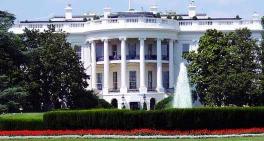Judge sides with Alaska attorney who alleged wrongful firing
Legal Events
A U.S. judge sided Thursday with an attorney who alleged she was wrongly fired by the state of Alaska over political opinions expressed on a personal blog.
U.S. District Court Judge John Sedwick ruled that Elizabeth Bakalar’s December 2018 firing violated her free speech and associational rights under the U.S. and state constitutions.
According to Sedwick’s decision, Bakalar was an attorney with the Alaska Department of Law who handled election-related cases and was assigned to advise or represent state agencies in high-profile or complex matters. She began a blog in 2014 that focused on issues such as lifestyle, parenting and politics but began blogging more about politics and then-President Donald Trump after his 2016 election. She also commented about Trump on Twitter, with her name listed as the Twitter handle, the order says.
Shortly after Republican Gov. Mike Dunleavy’s election in 2018, the chair of his transition team and later his chief of staff, Tuckerman Babcock, sent a memo to a broad swath of state employees requesting they submit their resignations along with a statement of interest in continuing to work for the new administration. The request was derided by attorneys for Bakalar and others as a demand for a “loyalty pledge.”
“To keep their jobs employees had to actually offer up a resignation with an accompanying statement of interest in continuing with the new administration and then hope that the incoming administration would reject the resignation,” Sedwick wrote.
Babcock said he fired Bakalar because he considered the tone of her resignation letter to be unprofessional, the order says. But Sedwick said Babcock did not accept the resignation of an assistant attorney general who used the same wording he had found objectionable when used by Bakalar.
While every lawyer in the Department of Law received the memo, just two — Bakalar and another attorney who had been critical of Trump on social media — had their resignation letters accepted, according to Sedwick’s decision.
Related listings
-
Partisan letters cost long-serving Alaska magistrate his job
Legal Events 01/11/2022The longest serving magistrate in Alaska is no longer on the bench after writing letters to the editor critical of the Republican party. Former Seward Magistrate George Peck wrote four letters to the editor of the Anchorage Daily News, the latest in ...
-
Court won’t stop Texas abortion ban, but lets clinics sue
Legal Events 12/10/2021The Supreme Court on Friday left in place Texas’ ban on most abortions, offering only a glimmer of daylight for clinics in the state to challenge the nation’s most restrictive abortion law. The decision, little more than a week after the ...
-
Federal judge leaves CDC evictions moratorium in place
Legal Events 08/13/2021A federal judge is refusing landlords’ request to put the Biden administration’s new eviction moratorium on hold, though she made clear she thinks it’s illegal. U.S. District Judge Dabney Friedrich on Friday said her “hands ar...

Any contracts or any transactions can go awry at any time
We know your business means a lot to you and want to understand all the aspects of your business so that we can help you in the best ways possible. We don’t discriminate depending on the size of your company. Our mission statement is to represent all business owners and entrepreneurs by navigating them through the rough waters of business litigation and guiding them to success.
We are attorneys who want to make sure we understand your business objectives and goals before we start providing you with legal counsel individualized to your business. We know what it means to be dedicated to your business. After all, we are a business as well. And just like you, we want to provide the best service we can to our clients.
Any contracts or any transactions can go awry at any time. Sometimes, making important business decisions without legal help from business attorneys could cost you your business.We don’t want you or your business to be misconstrued by anyone. Our attorneys make sure that we communicate with you often to make sure we are giving you the legal guidance you need at all times. We make sure we are responsive in a timely-manner with every single one of our clients to help them identify risks and prevent legal battles before they arise.




